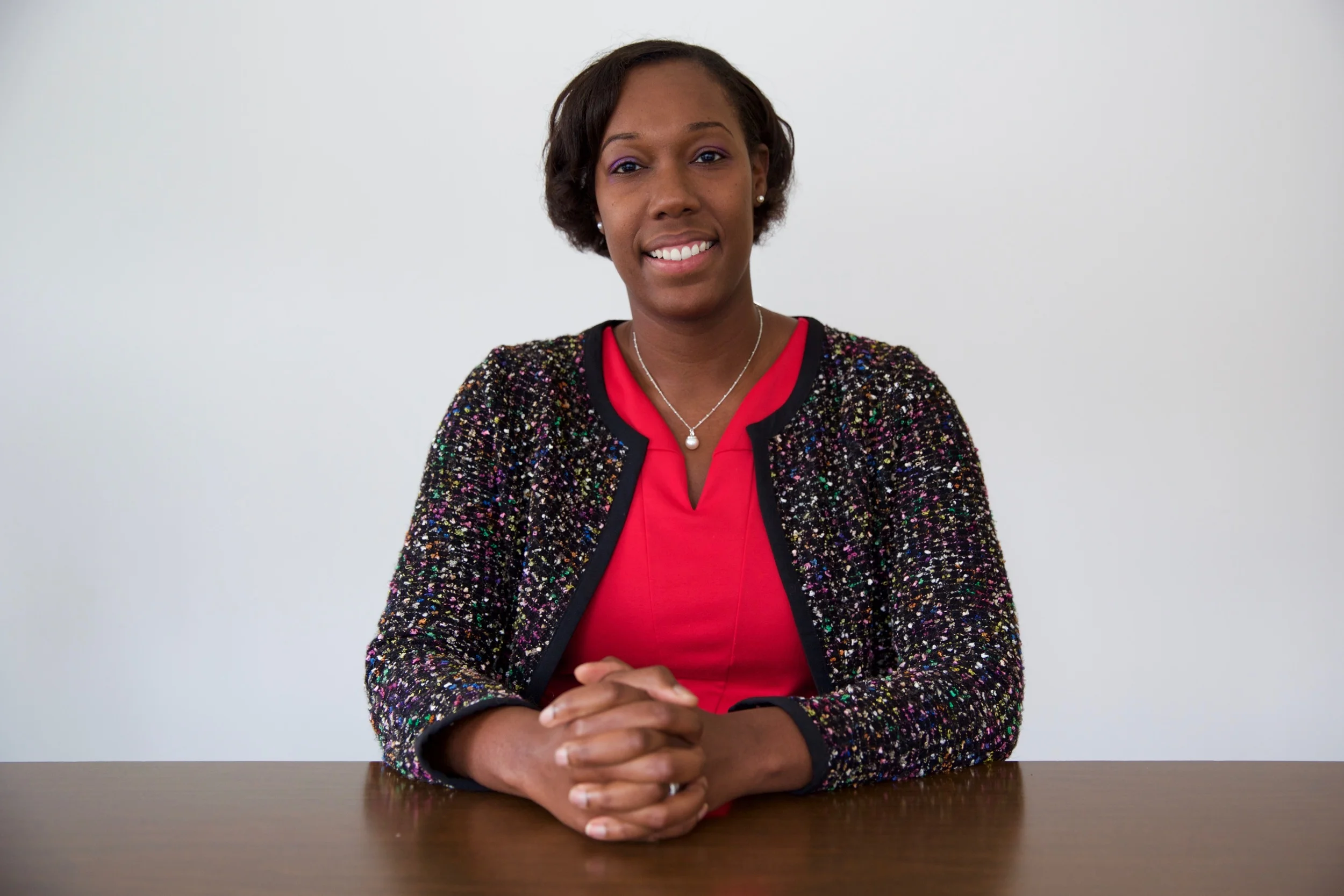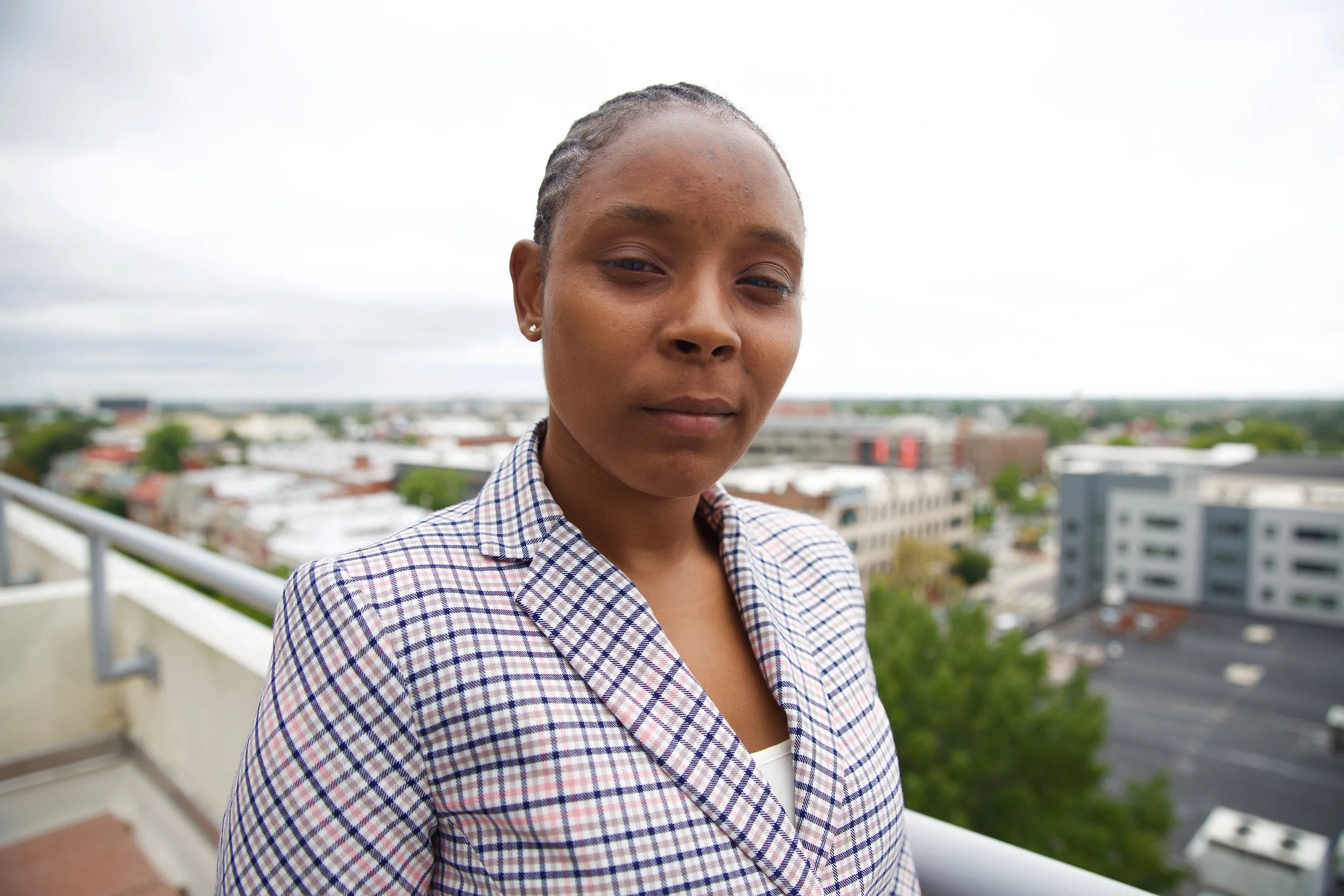Richmond Justice
STORIES + PORTRAITS
Ebony | September 30, 2016
Ebony Watson is a senior at Virginia Union University. She is a double major in Criminal Justice and Social Work, and chapter president of Lambda Alpha Epsilon, the professional fraternity of the American Criminal Justice Association. Last spring, Ebony studied in Cape Town, South Africa, and mentored young women in the juvenile justice system.
My long-term goal is to start a business that will counsel and mentor young girls. I want to work with girls who are victims of low self-esteem and sexual abuse, and who find themselves in the juvenile justice system.
Young girls are often overlooked and misunderstood, so I want to advocate for them and ensure they have the resources they need. Girls in the juvenile justice system are seen as criminals, but most are victims, too. The crimes they've committed often resulted from sexual abuse or other trauma that was never properly addressed. Once you start looking at people for who they are and not what they've done, you’ll start understanding why they’re in the system.
To be honest, I relate to a lot of the girls I meet and mentor. I come from a single-parent home. My father has been incarcerated for almost my whole life. Going through that struggle has allowed me to go into prisons and say confidently, “I’ve had some of the same barriers. I’ve seen some of the same challenges. I understand.”
“Girls in the juvenile justice system are seen as criminals, but most are victims, too.”
I grew up on Long Island with seven brothers. I was the only girl. With my dad in prison, my older brothers stepped up and acted as fathers. They ensured that I had what I needed. We were a middle-class family, but I saw poverty, too. I learned not to be judgmental of people who are impoverished. That’s why I'm attracted to social work: It’s about empathy and understanding. I was fortunate enough to have mentors growing up and to receive a partial scholarship for college. I want to help girls who don't have those opportunities.
To reach my long-term goal, I’m doing what I can to network and to learn what works and what doesn’t. I’m double majoring to help me analyze social problems from the perspectives of social work and criminal justice. I don’t want to work in law enforcement or corrections, but I do want to understand the criminal justice system so I can develop strong partnerships there. I want my business to be a resource for formerly incarcerated people to help them gain skills and keep from re-offending.
And one day, I want to combine my passion for cooking with my interest in criminal justice. I love baking cupcakes! I love making people happy, and everyone needs cupcakes for special occasions. A cupcake business would be the perfect opportunity to train formerly incarcerated people and teach them job skills. Some people laugh when I say I want to go to culinary school and pursue social work. But why not combine the two?
Some people are surprised that I chose to work in prisons and not go into teaching or another, “easier” job. Before I went to South Africa, they asked, “Why do you want to go into a prison? Why do you want to help these people?” I told them, “Because they’re people. They’re part of the world. I’m not saying that the crimes they committed aren’t wrong; they are. But I want to help change the problem.”
I'm asked often, “Why are you pursuing this line of work? You’re not going to make much money.” My response is always: “This is my passion; this is what I love doing. When you wake up every morning and love what you’re doing, the money doesn’t matter. Money will come. I’m going to do fine. I’m going to be just fine.”
— interviewed September 29, 2016








